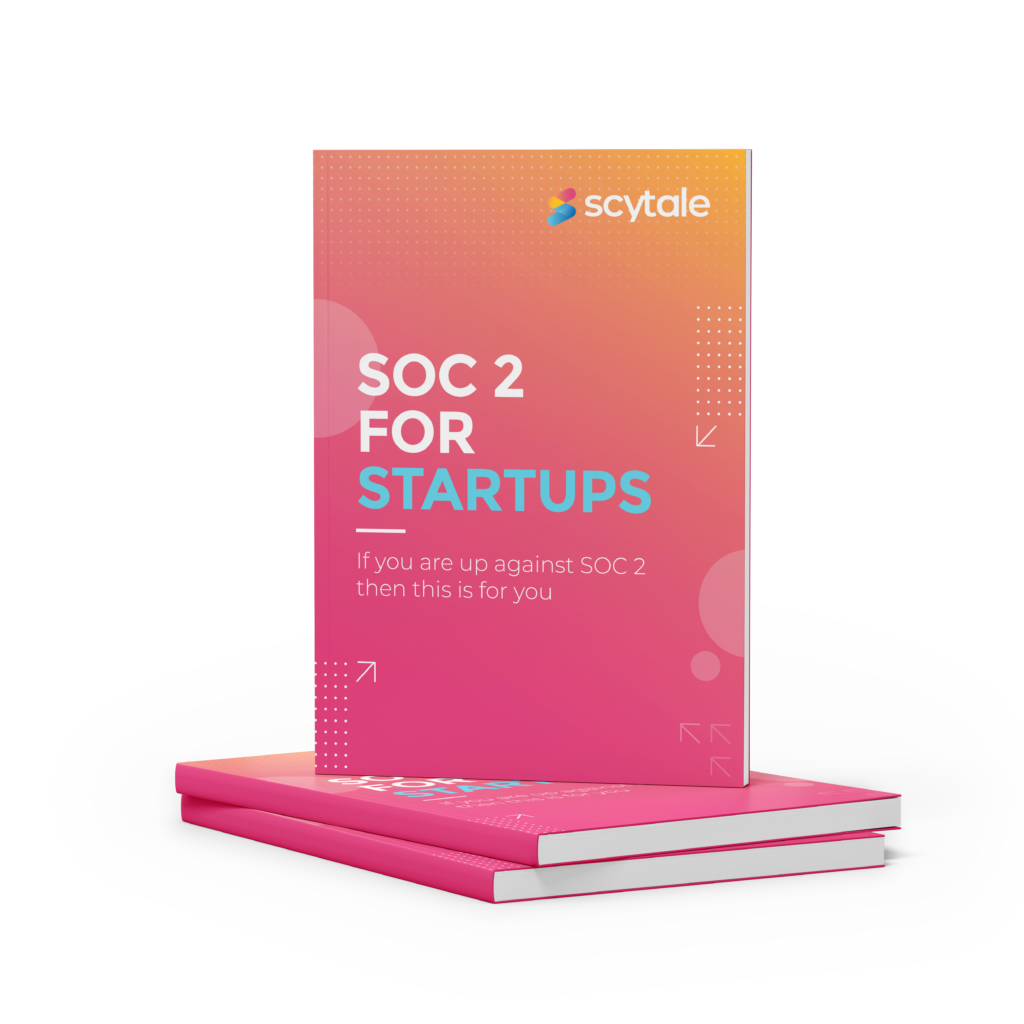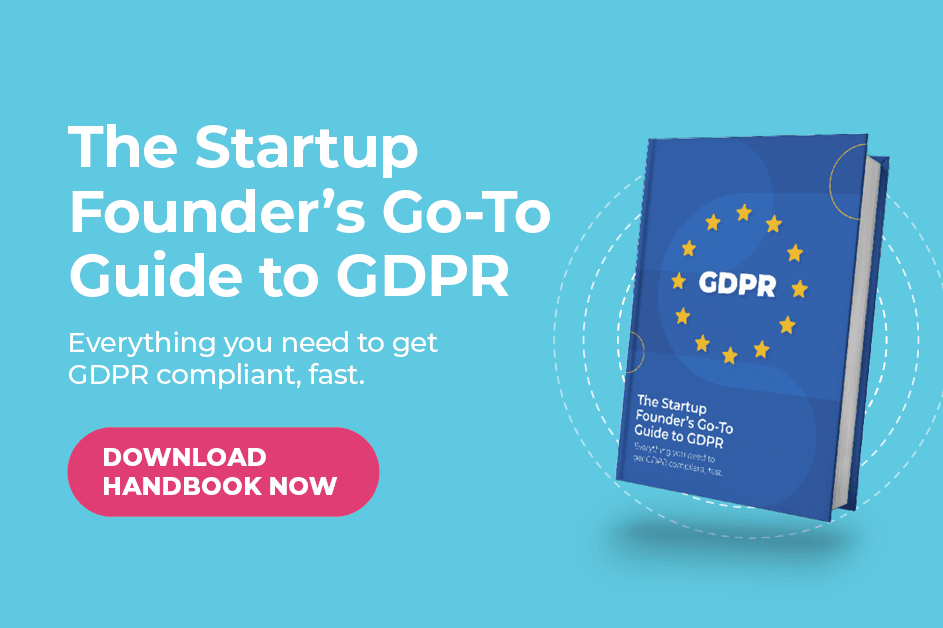What is SOC 2 Compliance?
SOC 2 (Service Organization Controls 2) is a set of compliance requirements geared toward technology-based companies that use cloud-based storage of customer data. SOC 2 is both an audit procedure and criteria. SOC 2 is often considered a voluntary compliance standard, but increasingly seen as essential by many businesses and their clients, and specifies how an organization should manage internal controls. The AICPA (The American Institute of Certified Public Accountants) developed a set of criteria to be used when evaluating an organization’s design and operating effectiveness of controls relevant to the Trust Service Principles (Security, Availability, Confidentiality, Processing Integrity, and/or Privacy).
Understanding SOC 2 Type 1
Most companies today require you to prove that you’ve at least got SOC 2 Type 1 compliance in place to ensure their data is secure, obtaining the relevant stamp of approval from an accredited auditor, prior to doing business with you. Complying with common frameworks such as SOC 2 has become an unwritten rule for most SaaS companies today who store customer data on the cloud.
Companies can choose to undergo a SOC 2 Type 1 or SOC 2 Type 2 report – with each serving different purposes based on the organization’s stage of compliance maturity and specific business needs – which evaluates the information security controls and processes at a service organization in relation to the Trust Service Criteria. Nonetheless, this raises the question: which type of report is best for your organization and what are their key differences?
SOC 2 Type 1 vs Type 2
So this begs the question, what are the differences between SOC 2 Type 1 compliance and Type 2 compliance reports. A SOC 2 Type 1 report looks at a service organization’s suitability of the design of controls at a single point in time. This report outlines the current of your information security system and the relevant controls in place. All administrative, technical, and logical controls are validated for adequacy.
Unlike the Type 1 report, the Type 2 report describes and evaluates the design of controls implemented and their operating effectiveness over a period of time.
Benefits of SOC 2 Compliance
SOC 2 compliance provides benefits such as:
- Customers often request a company’s SOC 2 report prior to entering into a business deal. Hence, without SOC 2, companies are likely to lose valuable business. Compliance with SOC 2 standards is also crucial for customer retention. Furthermore, it helps to meet and fulfill contractual obligations.
- Demonstrating SOC 2 compliance allows a company to stand out from other players in the market who have not decided to undergo the attestation. It makes customers more comfortable about working with SaaS providers. Ultimately, it provides a hefty competitive advantage.
- SOC 2 compliance ensures a company’s security posture is at the highest level. Therefore, a SOC 2 report reduces the risk of a data breach, human error, or fraud and its consequences. Fines from a data breach can cause financial loss. Furthermore, the company’s name can suffer reputational damage.
Why You Need a SOC 2 Type 1 Report: the Benefits
A SOC 2 Type 1 report proves to your customers and prospects that the design of your relevant controls are suitable and that you take information security seriously.
During the preparation phase of a Type 1 report, a readiness assessment may identify controls that were lacking in the service organization, allowing them to prepare a detailed strategy to remediate gaps, gain efficiencies, and achieve SOC 2 Type 1 compliance.
While SOC 2 Type 1 is quicker and less costly, a SOC 2 Type 2 report provides a more comprehensive assessment over time and may be viewed as more robust by some stakeholders. Companies today prefer achieving SOC 2 Type 2 compliance in order to assure customers and prospects that they have effective controls in place and that they are operating in accordance with the high standards of SOC 2. This assures customers that their sensitive data is being managed responsibly. Essentially, Type 2 is more favorable by virtue of the fact that it is a more rigorous and detailed assessment that also shows consistent and reliable compliance.
SOC 2 Type 2 compliance is always the best information security decision. And in saying this, SOC 2 Type 2 can often be a tedious and time-consuming process with regards to administrative tasks and collection of tons of evidence. Becoming SOC 2 compliant is more like a quest than a journey for many companies. Sometimes making a wrong turn is inevitable, especially for startups that do not have a dedicated compliance manager or CISO. Therefore, automating compliance becomes a necessity, as it ensures fewer resources, effort and time. See the benefits of smart security compliance explained in this video.
Who Needs a SOC 2 Type 1 Audit?
A Type I report is a great starting point for an organization that is new to the SOC 2 compliance journey. Additionally, Type I is also suitable for an organization that wants to demonstrate its information security relatively quickly but can not afford to undergo an entire observation period, due to a lack of time or other resources. SOC 2 Type I is ideal for smaller companies that have not yet developed a mature information security management system. It will provide them with all the fundamentals of SOC 2, as well as prepare them for a Type II report. However, typically an organization undergoes a Type I audit once as a preliminary step before moving on to Type II, and thereafter must undergo a Type II audit if/when the organization decides to.
A SOC 2 Type 1 report can also be generated quickly after a readiness assessment. Moreover, an audit for this report is generally less costly since auditors require less time and evidence to review, to determine the compliance position of a service organization.
SOC 2 Type 1 compliance should be adequate for the short term. Companies that do have the resources and time to commit can achieve Type 1 first and Type 2 within the same year, and should be renewed annually thereafter.
Service organizations should strive for SOC 2 Type 2 compliance especially when trying to partner with bigger firms, who are particularly wary of security. Enterprises are more likely to partner with service entities that have a SOC 2 Type 2 report in place.
See how fast-paced startups achieved their SOC 2 Type 2 compliance with ease through our smart compliance automation platform.
Navigating the SOC 2 Type 1 Audit Process
Understanding and navigating through the SOC 2 Type 1 audit can be daunting, but it’s essential for companies looking to demonstrate their commitment to security, availability, processing integrity, confidentiality, and privacy.
Preparing for the Audit
The journey to achieving SOC 2 Type 1 compliance begins long before the auditor steps through your door. Preparation is key, involving several critical steps:
Understand the Criteria: Familiarize yourself with the TSC relevant to your business. Not all criteria may apply, but understanding each is crucial for a tailored approach to compliance.
Perform a Gap Analysis: Conducting an internal review of your current controls against the SOC 2 requirements will highlight areas needing attention.
Implement Necessary Changes: Before the audit, you must address the gaps identified. This could involve updating policies, procedures, or even infrastructure changes.
Choose an Auditor: Select a reputable auditor experienced in SOC 2 audits. Their guidance can be invaluable, even in the preparation phase.
Documentation: Compile all necessary documentation of your controls and policies. Auditors will require comprehensive evidence of your controls’ design and implementation.
The Audit Process
With preparations complete, the actual audit process begins, which typically involves the following stages:
Planning and Scoping: The auditor will define the scope of the audit, confirming the TSC to be included and any specific system components under review.
Evidence Collection: The auditor will collect evidence to verify that the controls are in place and designed as per the SOC 2 requirements. This involves reviewing documents, conducting interviews, and observing processes and procedures.
Evaluation: The auditor assesses the evidence against the TSC to determine if the controls are appropriately designed.
Report Preparation: If the controls meet the criteria, the auditor will draft a SOC 2 Type 1 report, detailing the scope of the audit, the auditor’s findings, and an opinion on the design of controls.
The Report
A SOC 2 Type 1 report includes several key sections:
Auditor’s Opinion: The most critical part of the report, indicating whether the controls are designed in line with the TSC.
Management’s Assertion: A statement from your company’s management claiming responsibility for the controls.
Description of the System: Detailed information on the controls, including how they meet the relevant TSC.
Control Objectives and Activities: Specifics on the control objectives and the activities designed to achieve them.
After the Audit
Achieving SOC 2 Type 1 certification is an accomplishment, but it’s only the beginning. It’s a point-in-time audit, and ongoing compliance efforts are essential to maintain the integrity of the controls. Regular internal reviews, continuous improvement of the controls, and preparation for a SOC 2 Type 2 audit are next steps for organizations looking to demonstrate their commitment to security and privacy over time.
Does Your Company Have a SOC 2 Type 1 Report?
The SOC 2 Type 1 audit is a rigorous but rewarding process. It not only enhances a company’s security posture but also its marketability. By understanding the audit process, preparing meticulously, and engaging with it as a continuous improvement mechanism, companies can navigate this journey successfully. Embracing the principles of SOC 2 and using compliance software to assist with this process can transform it from a compliance exercise into a cornerstone of your organization’s security and privacy culture, laying a solid foundation for trust and reliability in the digital age.











